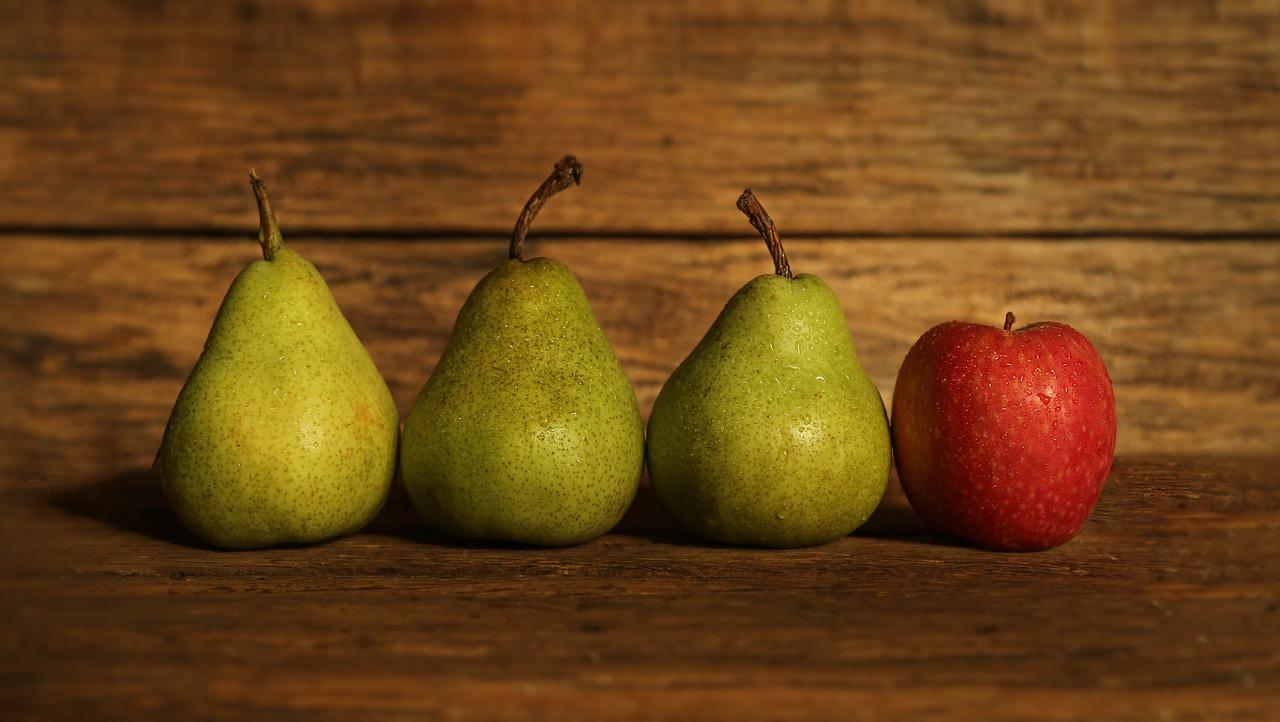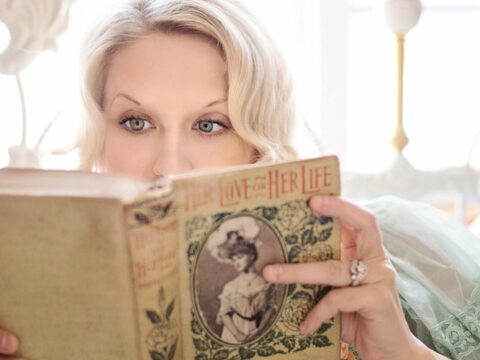Let’s talk about imposter syndrome: the feeling that you don’t deserve the good things that happen to you and that at any moment, everyone will discover that you’re a fraud. This imposter concept has been around since the 1970s. And spoiler alert: if you are feeling this, it’s almost always an illusion.
But hey, if you do suffer from this brand of paralyzing self-doubt, I too struggle with imposter syndrome. I’ve been thinking a lot lately about where these feelings come from and why it’s been such a long time since I’ve felt this way. It’s a weird experience to have certain inner demons awaken from hibernation to pay you a visit for tea . . . as in it’s frustrating as all get-out. And yet it’s also comforting to recognize how far I’ve come with a problem that used to be a lot worse.
So today, let’s pull back the curtain on this head-scratching phenomenon. Here are seven comforting thoughts and personal anecdotes about imposter syndrome . . .
#1: This Fear of Being Found Out Is an Extremely Common One
For the record, I don’t think I’ve met a single writer out there who doesn’t experience imposter syndrome now and then. It’s just a thing that high-achieving women feel, probably because we’re the demographic that uses so much of our brain power to worry. Specifically about what will happen if we mess up. Still, some recent studies have found that upwards of 82% of people experience imposter syndrome at some point in their life. So if you feel like a fake, you’re in really good company—including yours truly. Welcome to the club of neuroticism.
#2: Imposter Syndrome Usually Comes from Out-of-Control Perfectionism
I’ve been a perfectionist my entire life. To put this trait of mine in perspective, I remember receiving one of those 96 packs of Crayola crayons when I was just five years old. I excitedly opened up the box to empty my waxy treasures onto the rug. Then I proceeded to organize all those crayons into ROY G BIV rainbow order with each color arranged darkest to lightest before returning my correctly ordered crayons into their box. If that wasn’t evidence of my future therapy bills, I don’t really know what was.
But my point is that innately perfectionistic people often grow up to become straight-A students, highly driven and anxious adults, and people who eventually experience imposter syndrome. You can’t feel like an imposter amongst winners until you actually succeed at something. When those feelings of “I don’t belong here” start to take hold, I have to pause a second and remember that I am a flaming perfectionist. And if I’ve earned success so many times before, maybe this time I deserve it too.

#3: Having Imposter Syndrome Generally Means You’re Not a Fake
Fun fact: genuinely incompetent people almost never experience imposter syndrome. Nope. Idiots and mooches actually live a pretty calm, unruffled existence, which is one of the cruel ironies of the universe when you stop to think about it. They’re not the ones sitting around replaying their worst mistakes every day and catastrophizing about future mistakes and others’ judgment. No, that particular mental torture is reserved for actual smart people with overblown expectations for themselves.
I’m recalling a particular college experience when two people I knew were studying for a test. The one who was WILDLY unprepared was oozing confidence out of their pores. Meanwhile the smarter student, who’d done well on tests all year long, was absolutely drowning in anxiety. I feel like this was the first time in my life that I saw someone’s fear of failure as exactly what it was: irrational.
#4: If You’re Worried Other People Are Judging You, They’re Probably Not
The root terror of imposter syndrome is that everyone around you is quietly evaluating you, waiting for you to mess up so they can jump on you like a pack of piranhas to strip your flesh from your bones. And your dignity too. Dramatic, I know. I’m being honest when I say that the rest of the human population is generally too focused on their own lives to pay any attention to those around them.
I remember completely botching a violin solo once and sitting in numb disbelief for the rest of my recital. Later when I was eating the refreshments, feeling like a failed musician surrounded by all the real violinists, I went up to a friend and expressed my despair at how badly I had played. Her response? She didn’t even remember my solo. She was too overcome with embarrassment by the mistakes SHE made to notice any of mine. It was an enlightening and admittedly comforting moment for me.
You wouldn’t worry so much about what others think of you if you realized how seldom they do.
Eleanor Roosevelt

#5: Really, None of Us Has Any Clue What We’re Doing
This is something that I’ve become more and more aware of the older I’ve gotten. If you feel like you’re the odd one out surrounded by competent people who are gliding through life, looks can be incredibly deceiving. All of us have a tendency to compare our weaknesses to others’ strengths, the same way I compare my worst skin breakouts to the polished, made-up faces I see when I’ve left the house. No one is put together all the time. And we all think a lot of panicked silent thoughts that no one ever hears or sees.
How many times have you been relieved when someone dared to ask “a stupid question” that everyone else in the room was wondering too?
Most of us are stumbling through life and taking on new challenges all the time, often not by choice. We’re all just figuring out life, relationships, new jobs, parenting, social situations, and Pinterest projects as we go along. These are all areas with a million conflicting opinions out there and no guidebook. And let’s face it, no craft looks the same in real life as it does on Pinterest. Yeah. No.

#6: Imposter Syndrome Never Goes Completely Away—and That’s Okay!
Like I said, my imposter syndrome hasn’t reared its ugly head in quite a while, probably because I’ve mellowed with age. I’ve also turned into a woman who wears leggings and no makeup most days of the week, so my perfectionism is toning down in key areas lately. And yet—and yet! I had an experience this week that made me feel like an imposter.
I’m currently shopping my book around to agents, so I’m sending out lots of query letters and letting armies of people read my stuff. I had the shocking experience of three different writer friends in one week express how much they love my writing. Each one was confident that an agent is going to pick me up soon. Instead of rejoicing at this news, I folded in on myself. I got depressed and realized I didn’t actually believe all this positive feedback. Nor did I actually see myself succeeding in this area, especially after the non-responses and form rejections I’ve gotten.
So no, I’m not out of the woods with imposter syndrome. This issue will most likely haunt me the rest of my life, probably even worse once I get an actual offer. But you know what? I am not perfect. And that is okay. Questioning my confidence in this area just means that I’m challenging myself, and truthfully . . .
#7: Getting Out of Our Comfort Zones is How We Grow
Right? Imposter syndrome strikes when we’re trying something new, moving forward, and seeing the fruits of our hard work. So unless I’m surrounded by a set of EXTREMELY talented liars, I can only assume that my writer friends’ joy and admiration of my work is a great sign. A fantastic one considering just how many rounds of rewrites and feedback this manuscript has seen.

We’re in uncharted waters of the publishing process, and we will be from here on out. But you know what? I’m taking comfort from the fact that my second-guessing means my writing is probably better than I think it is. After all, we can’t all be as confident as the idiots in the world. ❧




